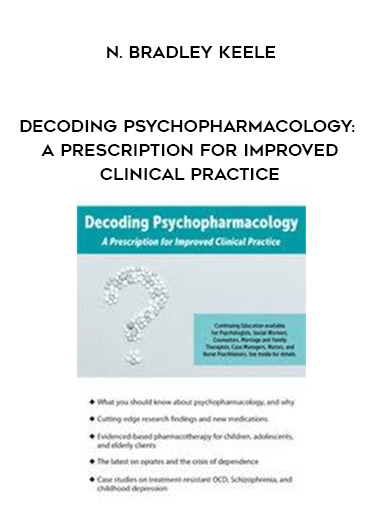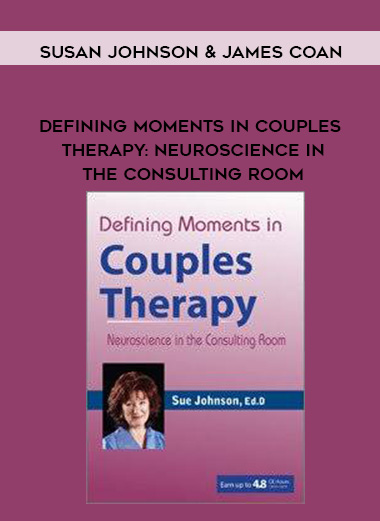DECODING PSYCHOPHARMACOLOGY: A PRESCRIPTION FOR IMPROVED CLINICAL PRACTICE – N. BRADLEY KEELE
Your Complete Guide to the Uses and Side Effects of Psychoactive Medications
Psychoactive medications are an indispensable part of treating many mental health problems. Patients are often prescribed several medications from different physicians. Do you feel like you should know more about how these medications work and why they are prescribed? Knowledge about the major psychoactive drug classes will help you answer clients’ questions with greater confidence, accuracy, and effectiveness, thereby improving your delivery of patient services.
This recording gives you the tools needed to more effectively communicate with your patients and prescribers about how these medications work, their benefits, and the side effects and dangerous reactions associated with them. Learn from an expert, N. Bradley Keele, PhD, who has over 20 years of psychopharmacology research experience and teaches clinical neuroscience and psychopharmacology at Baylor University.
- Articulate the clinical uses of the five major psychotropic medication classes- antidepressants, mood stabilizers, anti-anxiety agents, antipsychotics and psychostimulants.
- Describe the common side effects of antidepressants, mood stabilizers, anti-anxiety agents, antipsychotics and psychostimulants.
- Communicate the potential benefits and risks of using psychotropic medication to treat a wide array of conditions.
- Explore psychotropic medication treatment options for clients with Attention Deficit/Hyperactivity Disorder.
- Analyze the actions, therapeutic uses, and side effects of antidepressants in adults and children. Implement effective methods for collaborating with clients, families and prescribers in order to build a comprehensive treatment plan.
- Explore specific ethical issues and their resolve to the everyday practice of clinical psychopharmacology.
THE “NUTS AND BOLTS” OF PSYCHOPHARMACOLOGY
- Pharmacokinetics
- Pharmacodynamics
- Preclinical and clinical trials
- FDA approved and off-label use
HOW THE NERVOUS SYSTEM WORKS
- Neurons: building blocks of brain and behavior
- Neurotransmission: transmitters and receptors
SEDATIVE-HYPNOTICS, ANXIOLYTIC, AND ANTICONVULSANT MEDICATIONS
- Benzodiazepines and barbiturates
- Anticonvulsants
- New research findings in behavioral methods that permanently extinguish fear
ANTIDEPRESSANT MEDICATIONS
- Tricyclics and SSRIs
- SNRIs and new generation Antidepressants
- Depression is not a “chemical imbalance”: The neurogenic hypothesis
- New research on the short-term Antidepressant effect of ketamine (aka “Special K”)
CASE STUDIES
- When should Antidepressants be continued indefinitely?
- Can quality of life improve in treatment-resistant OCD?
ANTIMANIC MEDICATIONS
- Lithium carbonate
- Anticonvulsants as mood stabilizers
- Should Bipolar illness be classified as a thought disorder?
ANTIPSYCHOTIC MEDICATIONS
- Neuroleptics
- Atypical antipsychotics
- Everything we think we know about schizophrenia is wrong
ANALGESIC MEDICATIONS
- The physiology and pharmacology of pain
- Non-opiate treatment of pain
- Opiates and the crisis of dependence
ETHICS AND SPECIAL POPULATIONS
- Drugs and society
- Is the DSM-5® hindering the hunt for new medications?
- Should children and adolescents be prescribed antidepressants?
- Elderly clients
CASE STUDIES
- Schizophrenia, Bipolar, or Schizoaffective? Does treatment depend on diagnosis?
- Childhood depression
Tag: Decoding Psychopharmacology: A Prescription for Improved Clinical Practice – N. Bradley Keele Review. Decoding Psychopharmacology: A Prescription for Improved Clinical Practice – N. Bradley Keele download. Decoding Psychopharmacology: A Prescription for Improved Clinical Practice – N. Bradley Keele discount.




